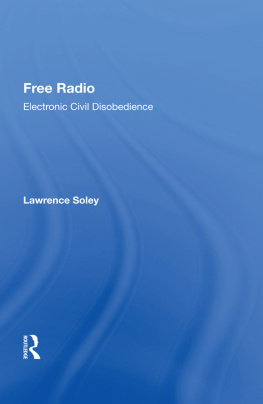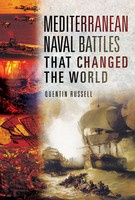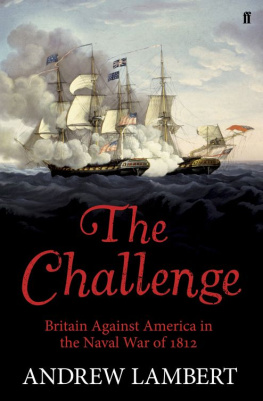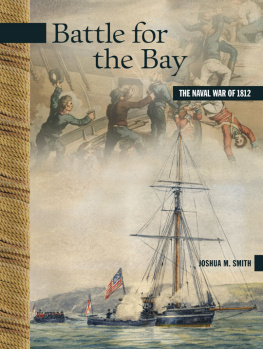James Russell Soley - The Boys of 1812 and Other Naval Heroes
Here you can read online James Russell Soley - The Boys of 1812 and Other Naval Heroes full text of the book (entire story) in english for free. Download pdf and epub, get meaning, cover and reviews about this ebook. year: 2020, publisher: BoD – Books on Demand, genre: Adventure. Description of the work, (preface) as well as reviews are available. Best literature library LitArk.com created for fans of good reading and offers a wide selection of genres:
Romance novel
Science fiction
Adventure
Detective
Science
History
Home and family
Prose
Art
Politics
Computer
Non-fiction
Religion
Business
Children
Humor
Choose a favorite category and find really read worthwhile books. Enjoy immersion in the world of imagination, feel the emotions of the characters or learn something new for yourself, make an fascinating discovery.

- Book:The Boys of 1812 and Other Naval Heroes
- Author:
- Publisher:BoD – Books on Demand
- Genre:
- Year:2020
- Rating:4 / 5
- Favourites:Add to favourites
- Your mark:
- 80
- 1
- 2
- 3
- 4
- 5
The Boys of 1812 and Other Naval Heroes: summary, description and annotation
We offer to read an annotation, description, summary or preface (depends on what the author of the book "The Boys of 1812 and Other Naval Heroes" wrote himself). If you haven't found the necessary information about the book — write in the comments, we will try to find it.
The Boys of 1812 and Other Naval Heroes — read online for free the complete book (whole text) full work
Below is the text of the book, divided by pages. System saving the place of the last page read, allows you to conveniently read the book "The Boys of 1812 and Other Naval Heroes" online for free, without having to search again every time where you left off. Put a bookmark, and you can go to the page where you finished reading at any time.
Font size:
Interval:
Bookmark:


| Page |
| Brig, head on |
| " The cutlass breaks at the hilt. " |
| " Bold and hardy men who had followed the sea since they |
| were boys. " |
| " He sent Colonel Glover and Mr. Palfrey in hot haste to |
| raise the minute-men. " |
| Nicholas Biddle. |
| He touched at a small town in Ireland for supplies. |
| The "Drake" surrenders to the "Ranger." |
| " The sloop was swallowed up in the seething waters. " |
| Heaving the lead on board the frigate. |
| " Everywhere the ship-yards were busy. " |
| David Porter. |
| " It was twilight before he came up with her. " |
| Thomas Truxtunfrom medal voted by Congress. |
| " Crowding on the rail with their scimitars. " |
| Commodore Edward Preble. |
| " He cut away the anchors, but still the ship hung fast. " |
| " The lights could be seen glittering in the houses. " |
| " The 'Philadelphia' lights them on their way. " |
| Stephen Decatur. |
| " Among these was one sixty-four, the 'Africa.' " |
| " A squall of wind and rain passed over us. " |
| Captain Isaac Hull. |
| " She lay a helpless wreck in the trough of the sea. " |
| " Jack Lang, a brave American blue-jacket, leaped first. " |
| " The ships were steering to the eastward on parallel courses. " |
| James Lawrence. |
| " Along the shore, upon every hill-top and headland, people |
| had gathered. " |
| " When the 'Essex' arrived off the island she lay to. " |
| Approaching the Galapagos Islands. |
| " 'We surrender,' and down came the flag. " |
| " Mostly carronades. " |
| " A squall struck her and carried away her main-topmast. " |
| Oliver Hazard Perry. |
| " A single gun boomed from Barclay's ship. " |
| " Calling away his boat, he rowed under the enemy's fire." |
| " The 'Pelican' was guided to her by the smoke of the burning |
| merchantmen. " |
| Captain Lewis Warrington. |
| " One round shot entered her aftermost port. " |
| " On the stocks, and nearly finished, the fine frigate 'Confiance.' " |
| Captain Charles Stewart. |
| " Accompanied by Abdallah the dragoman, I left the canal. " |
AND
OTHER NAVAL HEROES.

Font size:
Interval:
Bookmark:
Similar books «The Boys of 1812 and Other Naval Heroes»
Look at similar books to The Boys of 1812 and Other Naval Heroes. We have selected literature similar in name and meaning in the hope of providing readers with more options to find new, interesting, not yet read works.
Discussion, reviews of the book The Boys of 1812 and Other Naval Heroes and just readers' own opinions. Leave your comments, write what you think about the work, its meaning or the main characters. Specify what exactly you liked and what you didn't like, and why you think so.






